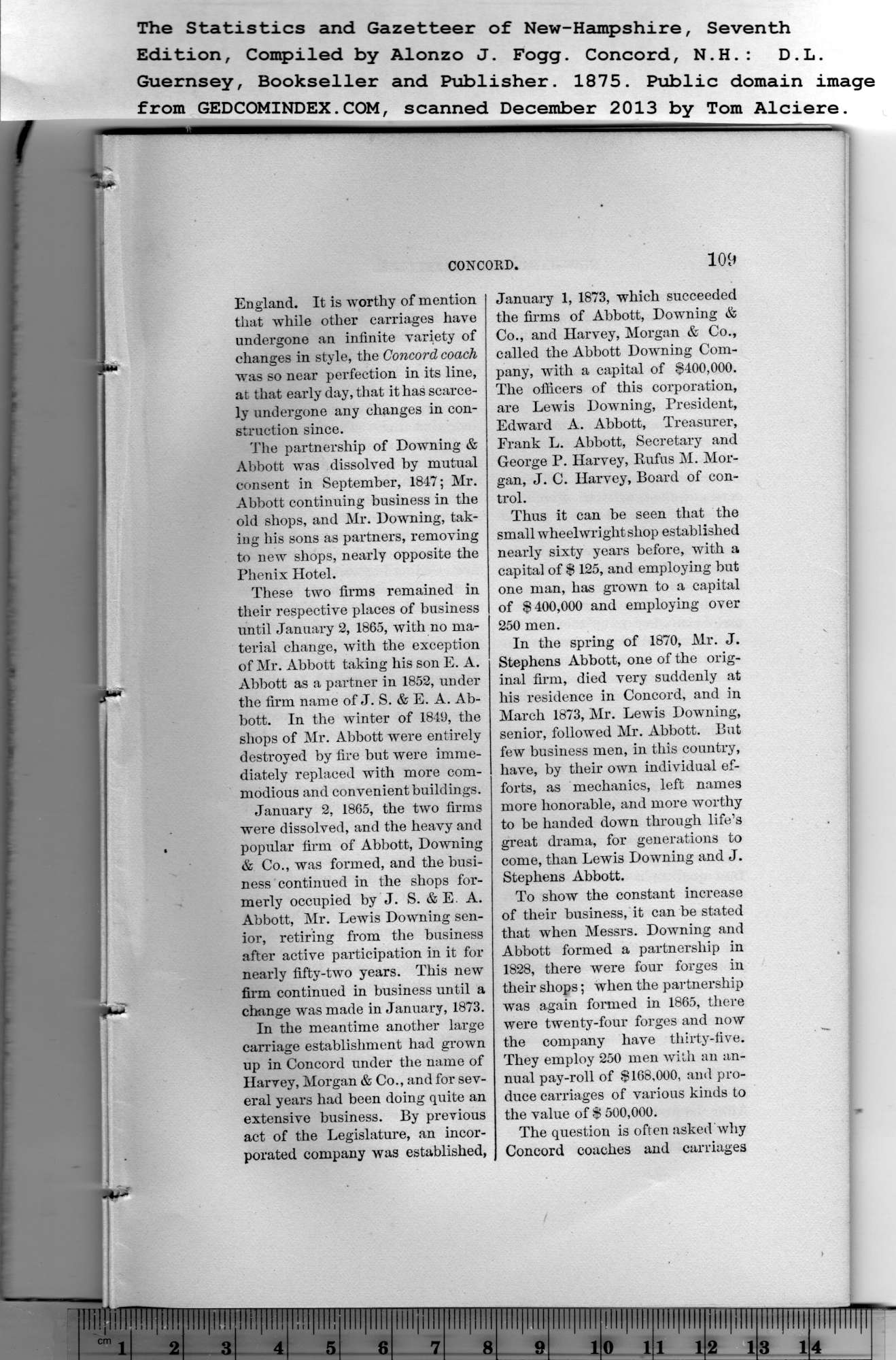|
England. It is worthy of mention
that while other carriages have
undergone an infinite variety of
changes in style, the Concord coach
was so near perfection in its line,
at that early day, that it has scarce-
ly undergone any changes in con-
struction since.
The partnership of Downing &
Abbott was dissolved by mutual
consent in September, 1847; Mr.
Abbott continuing business in the
old shops, and Mr. Downing, tak-
ing his sons as partners, removing
to new shops, nearly opposite the
Phenix Hotel.
These two firms remained in
their respective places of business
until January 2, 1865, with no ma-
terial change, with the exception
of Mr. Abbott taking his son E. A.
Abbott as a partner in 1852, under
the firm name of J. S. & E. A. Ab-
bott. In the winter of 1849, the
shops of Mr. Abbott were entirely
destroyed by fire but were imme-
diately replaced with more com-
modious and convenient buildings.
January 2, 1865, the two firms
were dissolved, and the heavy and
popular firm of Abbott, Downing
& Co., was formed, and the busi-
ness continued in the shops for-
merly occupied by J. S. & E. A.
Abbott, Mr. Lewis Downing sen-
ior, retiring from the business
after active participation in it for
nearly fifty-two years. This new
firm continued in business until a
change was made in January, 1873.
In the meantime another large
carriage establishment had grown
up in Concord under the name of
Harvey, Morgan & Co., and for sev-
eral years had been doing quite an
extensive business. By previous
act of the Legislature, an incor-
porated company was established, |
January 1, 1873, which succeeded
the firms of Abbott, Downing &
Co., and Harvey, Morgan & Co.,
called the Abbott Downing Com-
pany, with a capital of §400,000.
The officers of this corporation,
are Lewis Downing, President,
Edward A. Abbott, Treasurer,
Frank L. Abbott, Secretary and
George P. Harvey, Rufus M. Mor-
gan, J. C. Harvey, Board of con-
trol.
Thus it can be seen that the
small wheelwright shop established
nearly sixty years before, with a
capital of § 125, and employing but
one man, has grown to a capital
of §400,000 and employing over
250 men.
In the spring of 1870, Mr. J.
Stephens Abbott, one of the orig-
inal firm, died very suddenly at
his residence in Concord, and in
March 1873, Mr. Lewis Downing,
senior, followed Mr. Abbott. But
few business men, in this country,
have, by their own individual ef-
forts, as mechanics, left names
more honorable, and more worthy
to be handed down through life’s
great drama, for generations to
come, than Lewis Downing and J.
Stephens Abbott.
To show the constant increase
of their business, it can be stated
that when Messrs. Downing and
Abbott formed a partnership in
1828, there were four forges in
their shops; when the partnership
was again formed in 1865, there
were twenty-four forges and now
the company have thirty-five.
They employ 250 men with an an-
nual pay-roll of §168,000, and pro-
duce carriages of various kinds to
the value of § 500,000.
The question is often asked why
Concord coaches and carriages |
